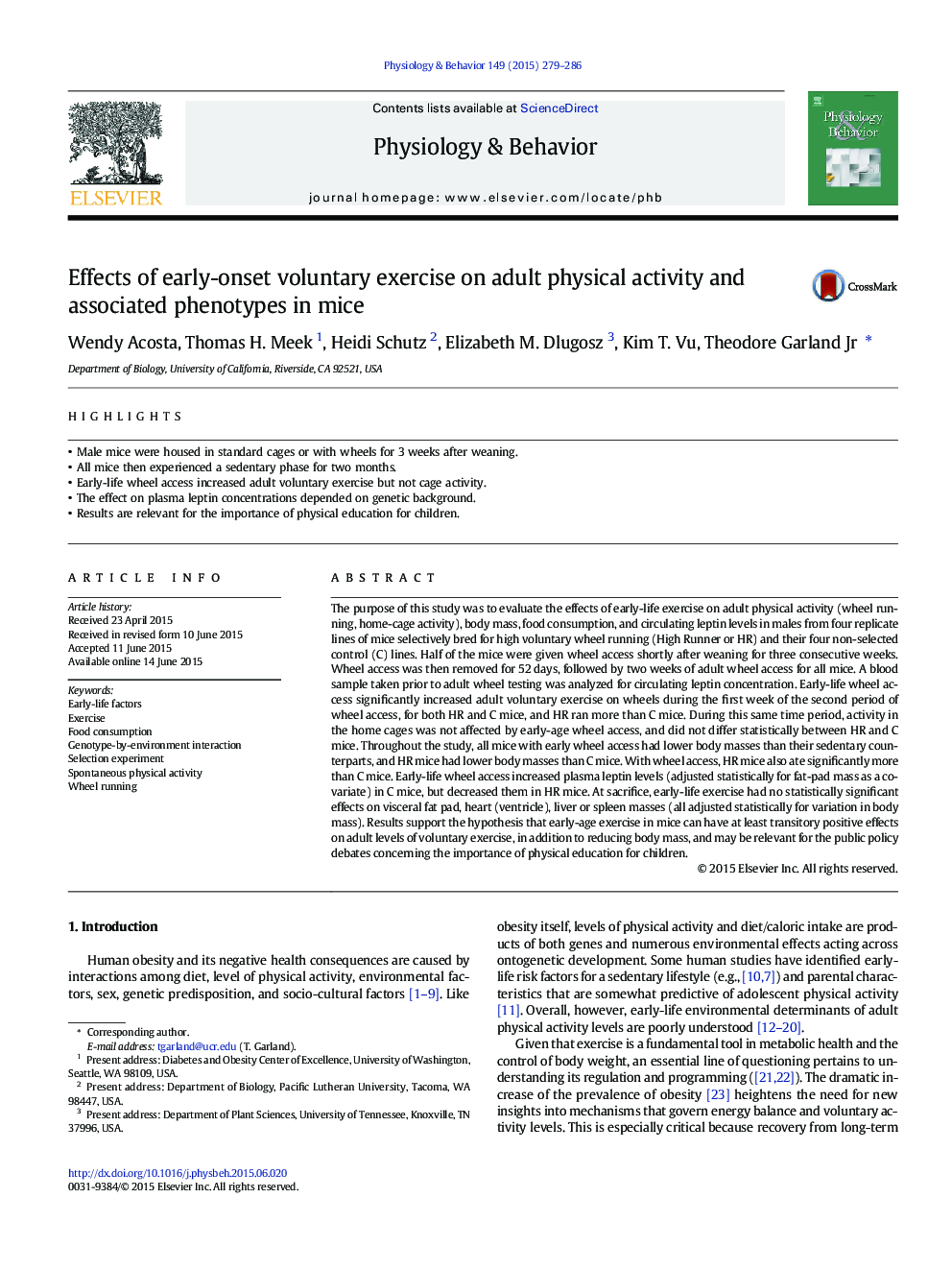| Article ID | Journal | Published Year | Pages | File Type |
|---|---|---|---|---|
| 5923598 | Physiology & Behavior | 2015 | 8 Pages |
â¢Male mice were housed in standard cages or with wheels for 3 weeks after weaning.â¢All mice then experienced a sedentary phase for two months.â¢Early-life wheel access increased adult voluntary exercise but not cage activity.â¢The effect on plasma leptin concentrations depended on genetic background.â¢Results are relevant for the importance of physical education for children.
The purpose of this study was to evaluate the effects of early-life exercise on adult physical activity (wheel running, home-cage activity), body mass, food consumption, and circulating leptin levels in males from four replicate lines of mice selectively bred for high voluntary wheel running (High Runner or HR) and their four non-selected control (C) lines. Half of the mice were given wheel access shortly after weaning for three consecutive weeks. Wheel access was then removed for 52 days, followed by two weeks of adult wheel access for all mice. A blood sample taken prior to adult wheel testing was analyzed for circulating leptin concentration. Early-life wheel access significantly increased adult voluntary exercise on wheels during the first week of the second period of wheel access, for both HR and C mice, and HR ran more than C mice. During this same time period, activity in the home cages was not affected by early-age wheel access, and did not differ statistically between HR and C mice. Throughout the study, all mice with early wheel access had lower body masses than their sedentary counterparts, and HR mice had lower body masses than C mice. With wheel access, HR mice also ate significantly more than C mice. Early-life wheel access increased plasma leptin levels (adjusted statistically for fat-pad mass as a covariate) in C mice, but decreased them in HR mice. At sacrifice, early-life exercise had no statistically significant effects on visceral fat pad, heart (ventricle), liver or spleen masses (all adjusted statistically for variation in body mass). Results support the hypothesis that early-age exercise in mice can have at least transitory positive effects on adult levels of voluntary exercise, in addition to reducing body mass, and may be relevant for the public policy debates concerning the importance of physical education for children.
